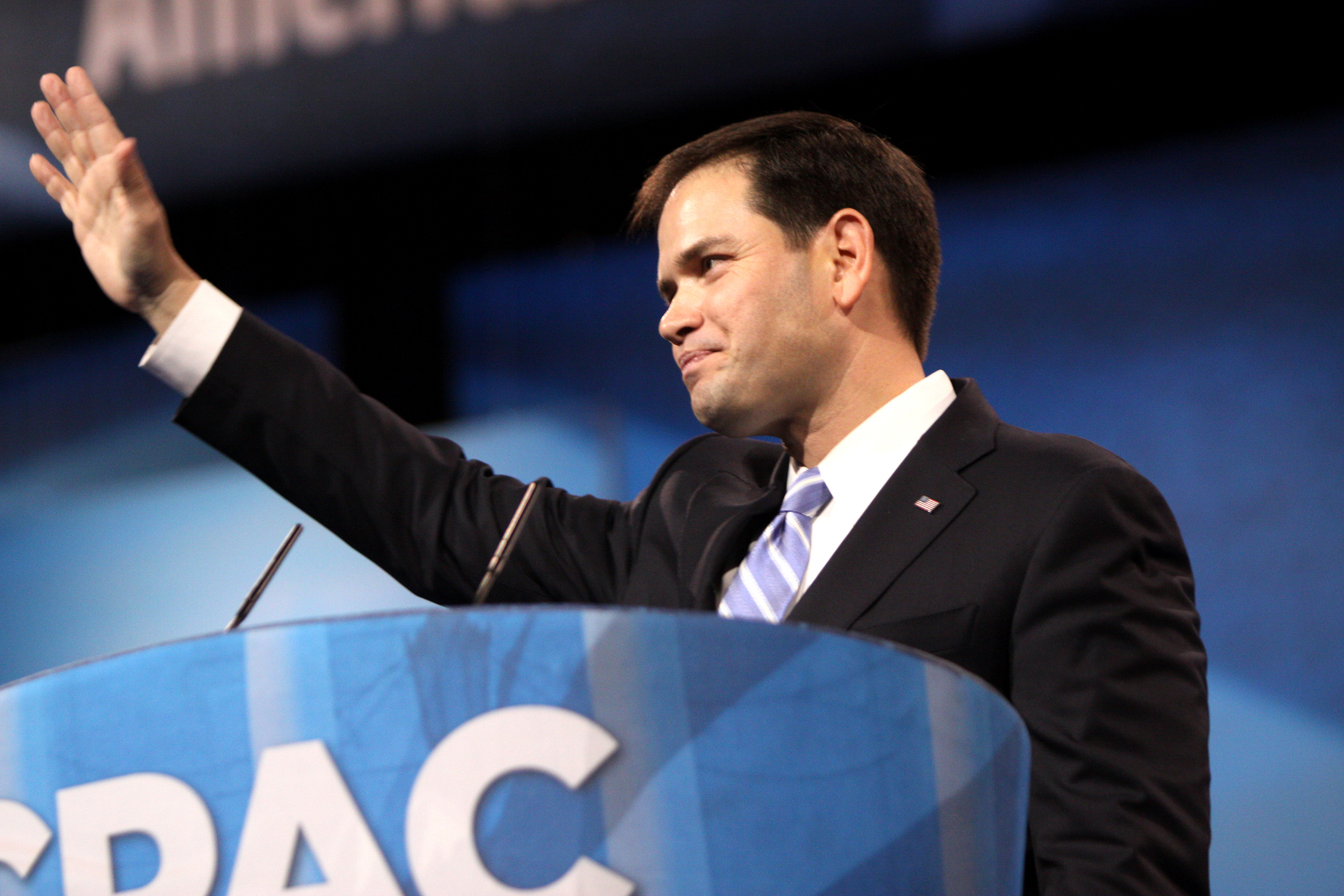by Eli Clifton
Sen. Marco Rubio (R-FL) came in third to Sen. Ted Cruz (R-TX) and Donald Trump in last night’s Iowa caucus, but he may emerge as the big winner from the first contest in the Republican nomination contest. Rubio established himself as a viable establishment candidate, finishing within striking distance of two anti-establishment candidates who reveled in offending the GOP’s elites, and made a crucial play for the long-sought endorsement from casino billionaire Sheldon Adelson and his wife Miriam. If secured, their support could unlock the key to as much as $100 million in supportive super PAC spending, if the past presidential election cycle is any indication as to their future political investments.
Going into last night, Rubio struggled to secure the most important endorsement of the hawkish pro-Israel wing of the Republican Party. To be clear, he had the next best thing: the endorsement of billionaire hedge funder Paul Singer who contributed $2.5 million to a super PAC supporting Rubio and held fundraisers for the candidate. Singer, like Adelson, is a generous supporter to groups and politicians that have opposed the White House’s diplomatic efforts to constrain Iran’s nuclear program. They are both board members of the neoconservative and pro-Likud Republican Jewish Coalition.
Rubio, like Singer, has staked out hawkish foreign policy positions. He cryptically accused Obama of betraying “the commitment this nation has made to the right of a Jewish state to exist in peace.” Pledging his unconditional support to Israel if elected president, Rubio promised he would “absolutely” revoke the Iran nuclear deal if elected president.
Those positions appeared to sit well with Sheldon and Miriam Adelson. Reports last October coming out of Nevada, where the Adelsons are based, predicted that the couple would shortly endorse Rubio.
But that didn’t happen.
Instead, the Adelsons bided their time and sat on their money. Rubio struggled in the polls against two anti-establishment candidates and blistering attacks from his fellow Floridian, Jeb Bush. In December, new reports emerged that the Adelsons were split. Sheldon still preferred Rubio while Miriam was leaning toward Cruz.
The Adelsons even made the maximum campaign contributions, $2,700 each, to Cruz in November as a low-cost signal of support while maintaining that they hadn’t yet made up their mind about whom to support.
Cruz is similarly hawkish in his foreign policy stances. For instance, he’s committed to tear up the Iran nuclear agreement and promises to “carpet bomb” the Islamic State. But he has a rocky relationship with the neoconservative foreign policy establishment of the Republican Party. He’s lashed out at neoconservatives, saying, “[they] have consistently mis-perceived the threat of radical Islamic terrorism and have advocated military adventurism that has had the effect of benefiting radical Islamic terrorists.”
Neoconservatives, such as Elliott Abrams, as documented today by Ali Gharib, have condemned Cruz’s comments while also giving him a pass due to the high-stakes tensions of the bruising primary season. Indeed, if the Adelsons were considering Cruz as a viable option, the foreign-policy hawks that they help fund would do well to give him the kid-gloves treatment.
But that was then. Rubio has now shown himself to be a competitive establishment candidate against two anti-establishment candidates in Iowa, a state which was supposed to tilt heavily toward Cruz and Trump. He is thus an attractive option for GOP megadonors, such as the Adelsons, who favor a hawkish foreign policy abroad while embracing the anti-regulatory and pro-big business domestic politics that could capture the support of the Koch political-financial network.
Indeed, Rubio has reclaimed his position as the most likely choice for the GOP nomination in political betting markets, a position held by Donald Trump for the past several weeks. More importantly, Rubio has brought himself one step closer to clinching the endorsement, and financial support, of the Adelsons, the GOP’s most influential billionaire donors.





